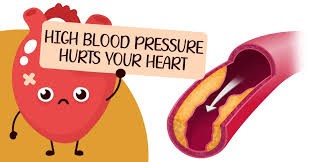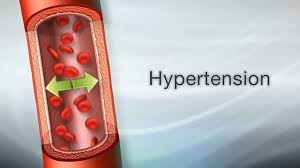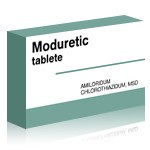High Arterial Pressure – Understanding and Managing the Condition


What is High Arterial Pressure and Why Does it Matter?
Have you ever wondered why doctors keep checking your blood pressure during every visit? High arterial pressure, also called high blood pressure, happens when the force of blood pushing against the artery walls is too strong for a long time. This extra pressure makes the heart work harder and can slowly damage blood vessels. Over time, this can lead to serious health problems affecting the heart, brain, and kidneys.
Main points to understand:
- It happens when the blood moves through the arteries with more force than normal
- Often develops slowly over many years
- Many people do not notice symptoms until it becomes more serious
- Can affect people of any age, but risk increases with age
- A healthy lifestyle can help prevent or control it
High arterial pressure may seem simple, but it is a serious condition that quietly affects body over time, making early undestanding and control very important.
Common Causes of High Arterial Pressure
Why does this condition happen in the first place? There is no single cause, but certain habits and health conditions can make it more likely. Some people may be more at risk because of their family history, while others may develop it from lifestyle choices.
Main contributing factors include:
- Eating too much salty food
- Being overweight or having low physical activity
- Experiencing long-term stress
- Smoking or drinking too much alcohol
- Family history of high blood pressure
- Certain medical conditions that affect the heart, kidneys, or hormones
Knowing the common causes help people make changes in their daily life and reduces the chances of developing high arterial pressure.
Signs and Symptoms to Look Out For
Most people with high arterial pressure do not feel sick, which is why it is sometimes called a “silent” condition. However, when the pressure becomes very high, some signs may appear.
Possible warning signs include:
- Headaches, especially in the morning
- Dizziness or blurred vision
- Shortness of breath
- Chest pain or feeling pressure in the chest
- Nosebleeds (less common but possible)
- Tiredness without a clear reason
Because symptoms may be mild or absent,regular blood pressure checks are the safest way to find and manage this condition early.
Why High Arterial Pressure is Dangerous
It may seem harmless if it does not cause pain, but ignoring it can lead to serious health problems. High arterial pressure puts extra strain on the heart and blood vessels, which can damage them over time.
Health risks include:
- Heart disease and heart failure
- Stroke and other brain problems
- Kidney damage
- Damage to the eyes and vision
- Hardening and narrowing of the arteries
Even without symptoms, high arterial pressure can cause lasting harm, which is why managing it is vital for long-term health.
Lifestyle Changes to Lower High Arterial Pressure
Before turning to medication, many doctors recommend improving daily habits to help control blood pressure naturally. Even small changes can have a big effect over time.
Helpful lifestyle habits include:
- Eating more fresh fruits, vegetables, and whole grains
- Reducing salt intake and avoiding processed foods
- Exercising regularly, such as walking, swimming, or cycling
- Managing stress through deep breathing, meditation, or hobbies
- Avoiding smoking and limiting alcohol use
- Getting enough good-quality sleep each night
Making healthy changes is often the first and most effective step toward lowering high arterial pressure without the need for strong medicines.
Medication to Help Control High Arterial Pressure – Moduretic
When lifestyle changes are not enough, doctors may suggest medicines to help lower blood pressure. One such option is Moduretic (Amiloride Hydrochlorothiazide), which helps remove extra salt and water from the body while keeping important minerals balanced.
Key points about Moduretic:
- Helps reduce the amount of fluid in the blood vessels, lowering pressure
- Supports the body in keeping healthy potassium levels
- Often used for people who do not respond well to other diuretics
- Usually taken once a day, with or without food
- Works best when combined with healthy lifestyle habits
Another important note about Moduretic:
This medicine is not a quick fix but part of a long-term plan to protect the heart and blood vessels. It should always be taken exactly as prescribed by a doctor. Stopping the medicine suddenly without advice can make blood pressure rise again.
Additional tips for patients taking Moduretic:
- Have regular blood tests to check potassium and kidney function
- Drink enough water but avoid excess salt in the diet
- Inform the doctor about any other medicines or supplements being used
- Report any unusual symptoms such as extreme tiredness or muscle cramps
For some patients, Moduretic can be a helpful tool in controlling high arterial pressure when lifestyle changes alone are not enough.Following the doctor's advice and using Moduretic correctly helps ensure better results and avoids unnecessarly health risks.
Maintaining healthy blood pressure is one of the best ways to protect the heart, brain, and kidneys. By understanding the causes, risks, and available treatments, people can take active steps toward better health. Lifestyle changes, combined with the right medication when needed, can make a big difference in controlling high arterial pressure and preventing long-term problems.
Article Post: Editorial Team of RXShop.md
(Updated at Aug 8 / 2025)
